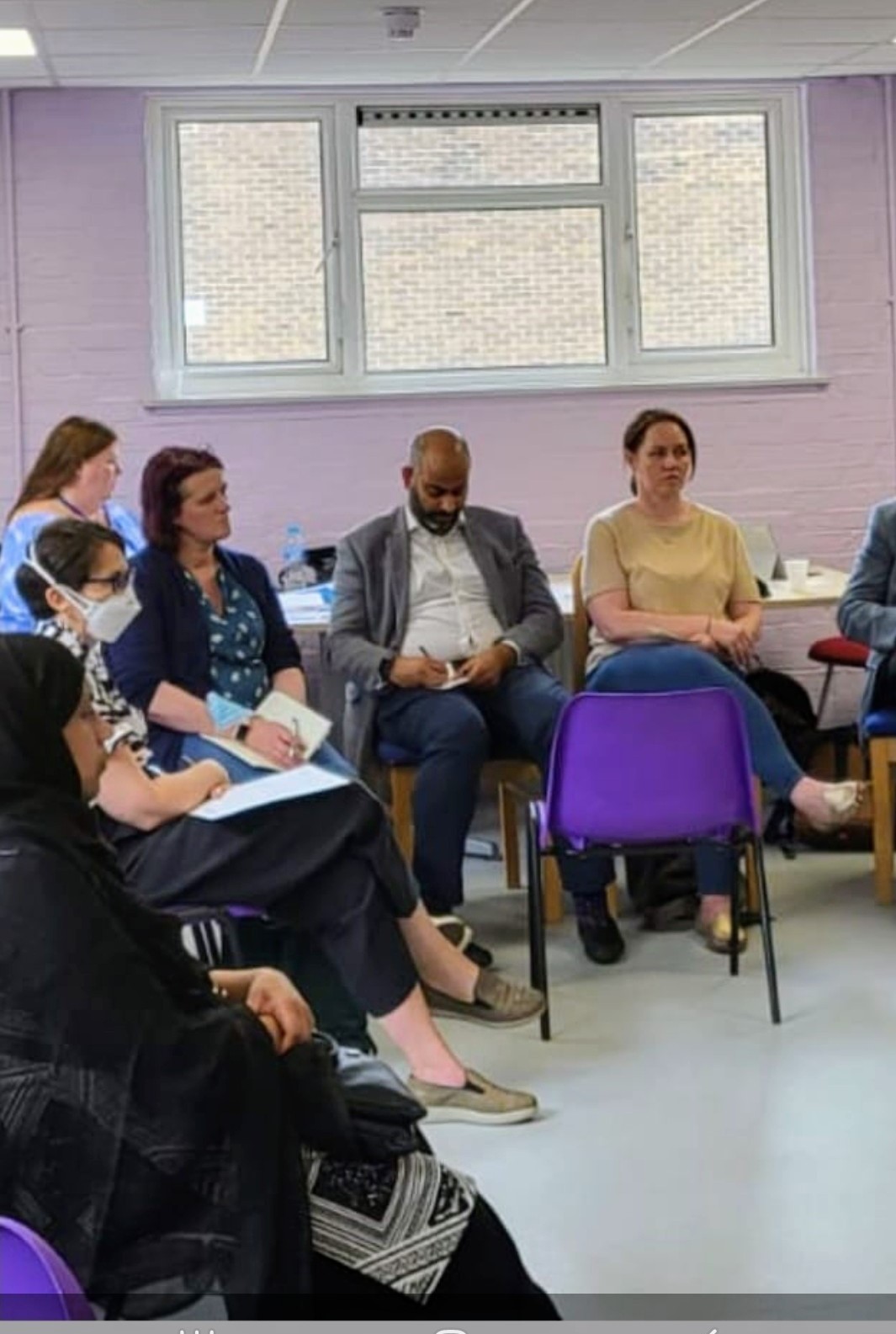 On 6 July 2022, a community-based Patient Participation Group (PPG) meeting was hosted by the Mosaic Community Trust at the Portman Early Childhood Centre from 12pm to 2.30pm in order to hear the experiences of patients with regard to their engagement in improving access to culturally appropriate healthcare services and reducing health inequalities and focus on Mosaic community members’ issues and challenges in accessing GP and hospital services.
On 6 July 2022, a community-based Patient Participation Group (PPG) meeting was hosted by the Mosaic Community Trust at the Portman Early Childhood Centre from 12pm to 2.30pm in order to hear the experiences of patients with regard to their engagement in improving access to culturally appropriate healthcare services and reducing health inequalities and focus on Mosaic community members’ issues and challenges in accessing GP and hospital services.
Attendees
Several NHS and NHS linked representatives were invited including the local GP surgeries (Paddington Green –and Lisson Grove. Also in attendance was Andrew McCall, a lay partner from the NWL Clinical Commissioning Group (as it was then), Nafsika Thalassis from Hammersmith and Fulham Council and Maria Piggin from Imperial College, London as well as approximately 20 Mosaic community members.
Importance of Venue
PPGs are usually held at the GP surgeries however holding one at a Mosaic venue allowed the Mosaic community members to feel comfortable in familiar and safe surroundings and to be supported by other community members and Mosaic staff.
Value of Community Support
The meeting began with an introduction by our CEO Lena Choudhary- Salter about the Mosaic community more generally and the support provided. One community member explained how the community support she had received from other Mosaic community members had significantly improved her mental and physical health and she was now integral in supporting other members of the community. Lena then invited community members present to speak about their experiences with GP and other NHS services.
Challenges experienced with GP Services
These included difficulties in obtaining GP appointments, rude GP receptionists and the requirement to explain a medical condition to the GP receptionist to be able to book an appointment, lack of information provided by healthcare professionals to explain medical conditions, problems changing GP surgeries, hospital discharge papers not being provided to the GP/pharmacist, family members being prevented from interpreting for their loved ones and interpreting services not having the appropriate dialects available.
Response from Local GP Practices and the NWL CCG
Dr Rishi Chopra from Paddington Green GP surgery addressed as many concerns raised by community members as he was able to which included acknowledging current limitations of GP practices including the requirement for reception staff to triage patients over the phone before making them an appointment with the GP which is a current NHS Directive. He confirmed there is a shortage of GPs and the NHS is playing ‘catch up’ from COVID seeing people who have left problems for a long time before addressing them and there are face- to- face appointments still happen (but they are hard to get).
Services
Community members were reminded that they have can book 20-minute GP appointments and that community pharmacist/Advanced Nurse Practitioners can provide them with healthcare advice too. Westbourne Green and Connaught GP centres have hubs which are open on the weekend however the only walk in clinic is in Soho. There is no face- to- face interpreting service and interpreting over the phone is clunky and the quality is not assured. The phone interpreters don’t need advance booking. Although relatives can sometimes be used there is an issue of the quality of the translation and the confidentiality issues e.g., a boy translating for his mother.
Interpreting
There is no face- to- face interpreting service and interpreting over the phone is clunky and also the quality is not assured. The phone interpreters don’t need to be booked in advance. Although relatives can sometimes be used there is an issue of the quality of the translation and of confidentiality issues with relatives interpreting where care needs to be taken e.g. a boy translating for his mother. Andrew McCall committed to exploring why interpreters don’t include those with the appropriate dialects.
Changing GP practices
He encouraged people to change GP practices if they weren’t happy and confirmed GPs have to seek permission to close their patient list and there is a geographical area (shown on their website) of where you need to live to register at a GP practice. It was confirmed you don’t need proof of address to register at a GP but you need this to register for online services which can be confusing. He also confirmed he would pass on feedback to the Crompton GP surgery which was not represented at the meeting. Andrew McCall also mentioned the Right Care Community Campaign which helps people register with a GP practice.
Future PPGs
The practice manager from Paddington Green encouraged Mosaic community members to attend their surgery’s PPG meetings (one was the following day). Lena expressed that these meetings should be held in community venues such as the Mosaic space so the community would feel comfortable attending. Andrew McCall acknowledged that PPG groups don’t represent the population and that they are working through Healthwatch to address this.
Improving access to culturally appropriate healthcare services and reducing health inequalities
The following points were also made during the session relating to improving access to culturally appropriate healthcare services and reducing health inequalities:
- The need for improved health literacy amongst Mosaic community members. Lena explained that Mosaic is currently undertaking the role of explaining the meaning of a diagnosis e.g., Crohn’s Disease to patients/parents.
- It was emphasized that many Mosaic community members come from countries where you have to pay for a GP so the NHS is viewed as a charity and people are very grateful for the service they receive and therefore don’t want to bother healthcare professionals by asking more questions when something isn’t clear or more information is needed. Mosaic facilitates role plays with community members about how to speak with GPs and advocate for themselves.
- training the GP receptionists on cultural diversity
- addressing the stigma around some health conditions through community models e.g., challenging superstitions and religious beliefs
Unmet Needs
Several unmet needs were identified by community members in this session including:
- mental health problems in children which are increasing. Parents are fearful of their children being labelled because of a mental health problem. There is a need for workshops to educate parents and tell them what help is available. Community members considered there is no differentiation between the concepts of “mental health” and “mental illness” and the word “mental” is negative and suggested “emotional health” should be used instead.
- autism/ADHD with the need for recognition that autism is not a mental health need but a developmental need (although a child with autism can also have a mental health issue). The current waiting list for autism assessments is too long.
- lack of lifestyle advice for example, Antacid (omeprazole) is being prescribed and used by many community members however alternative lifestyle advice would be beneficial e.g., eat earlier in the evening and avoid certain foods to address digestive problems rather than taking this drug.
Next Steps
With Dr Chopra confirming that the future of healthcare is around “neighbourhoods” like Mosaic, this Community based PPG evidenced the rich insights which could be gathered by engaging with communities in their own neighbourhood settings and the enormous benefit of peer-to-peer support to both mental and physical health. The need to improve access to culturally appropriate healthcare services, reduce health inequalities and address unmet needs is paramount and can only be addressed through the provision of spaces in which the community can honestly feedback their experiences.


